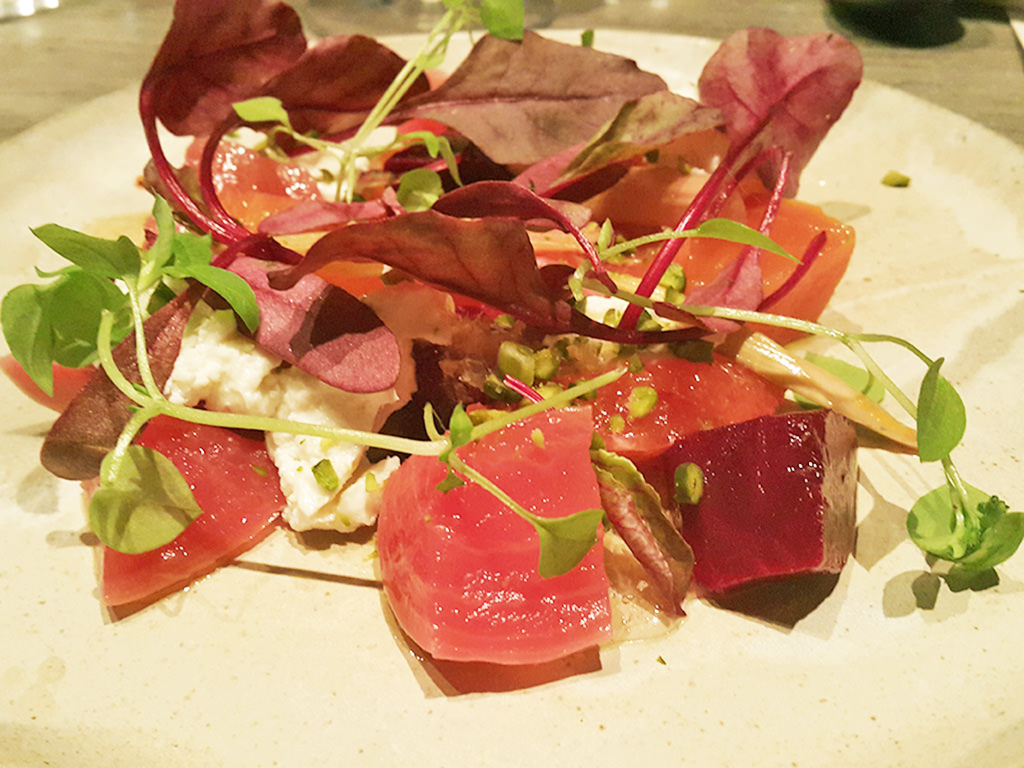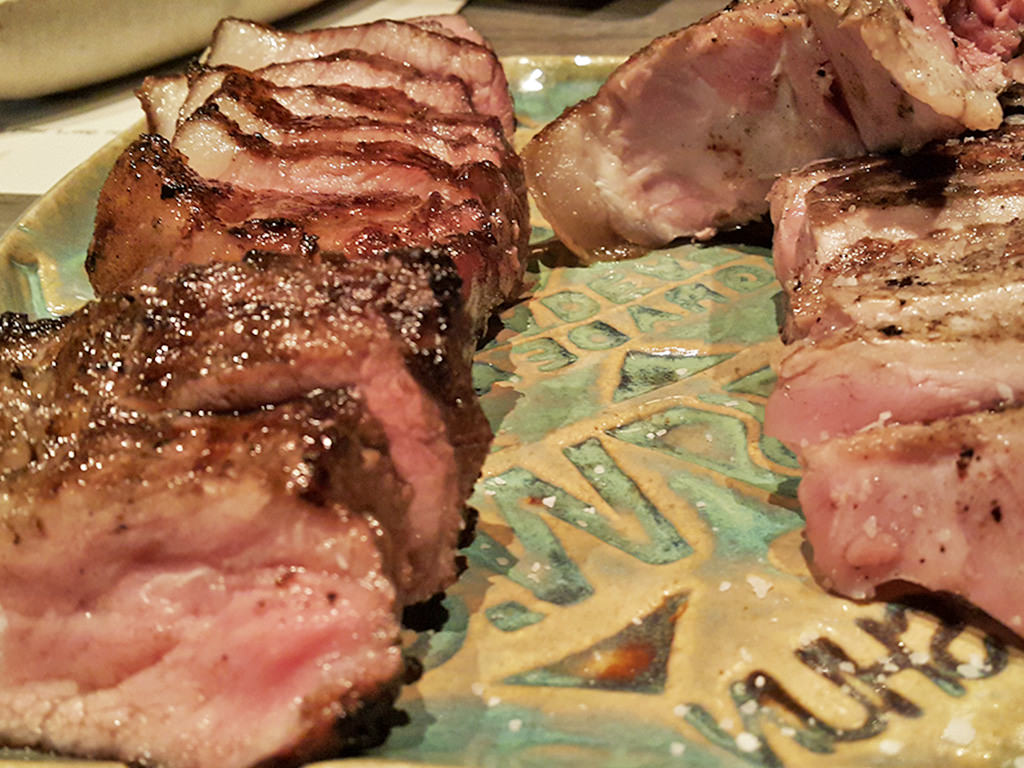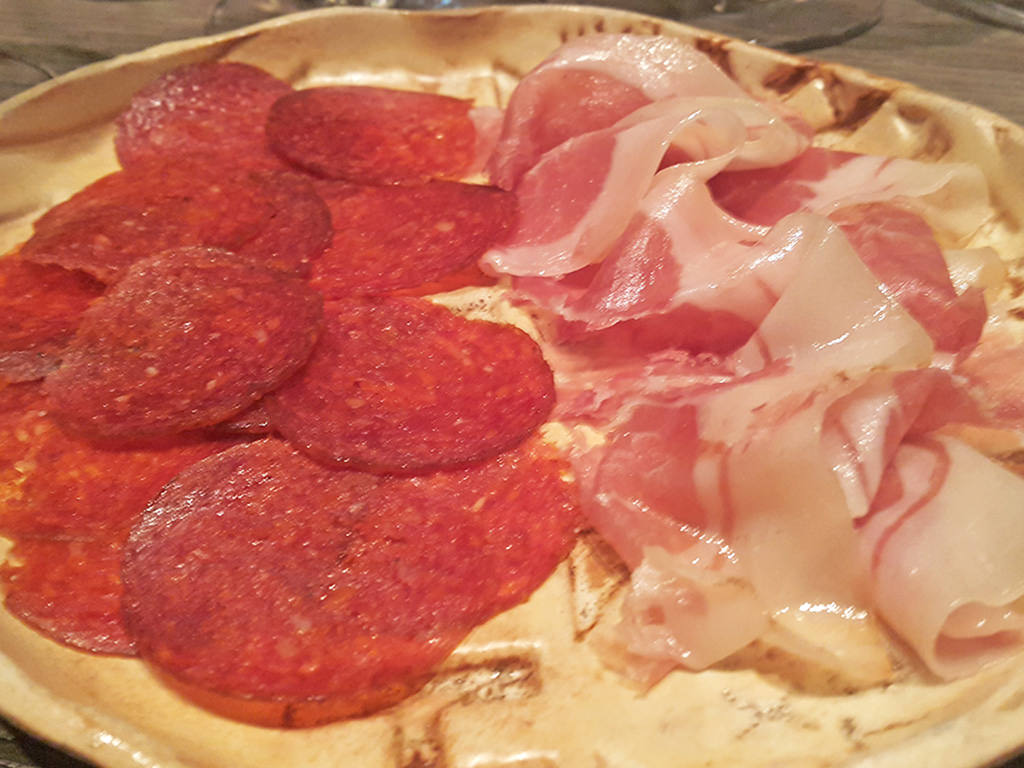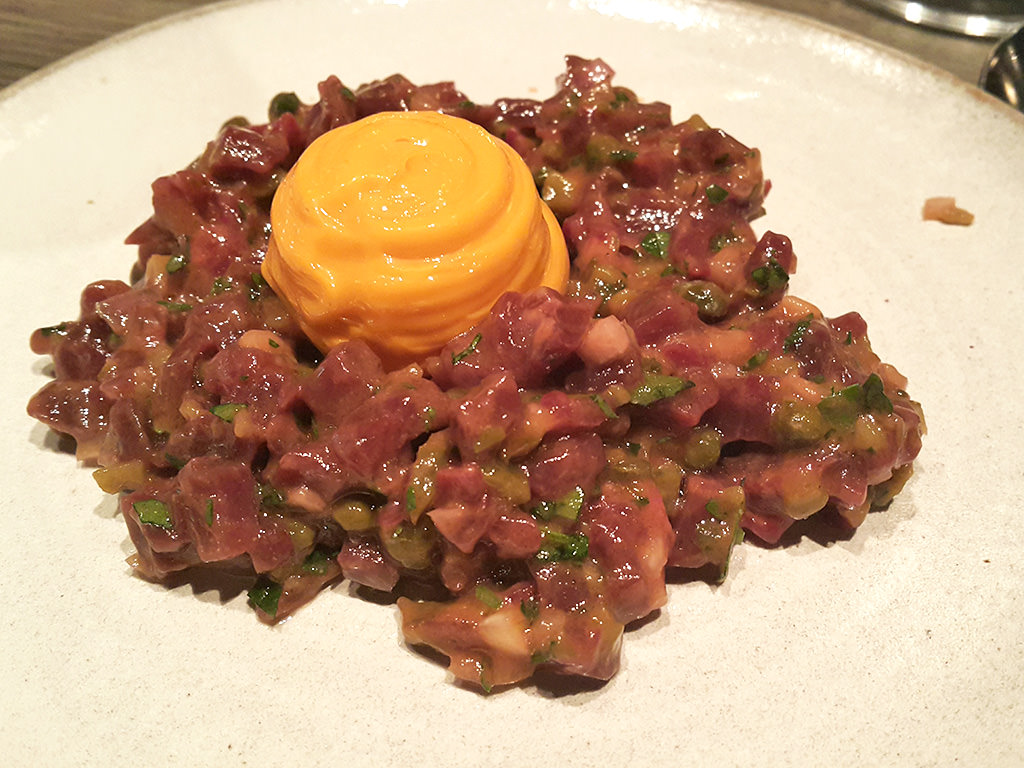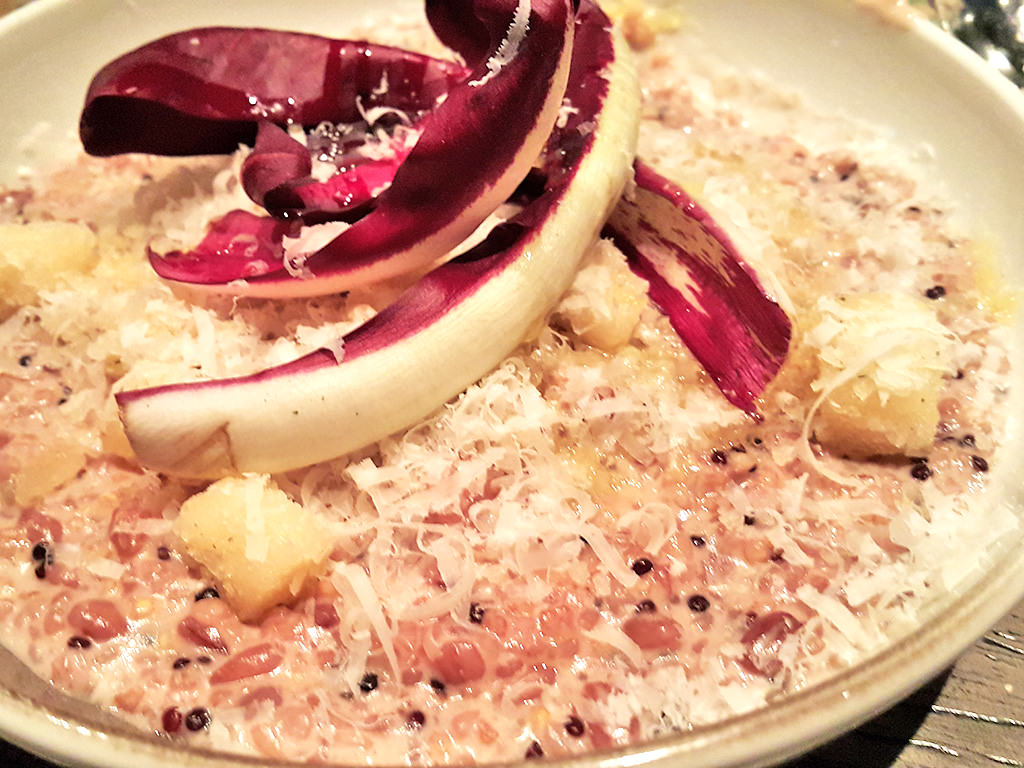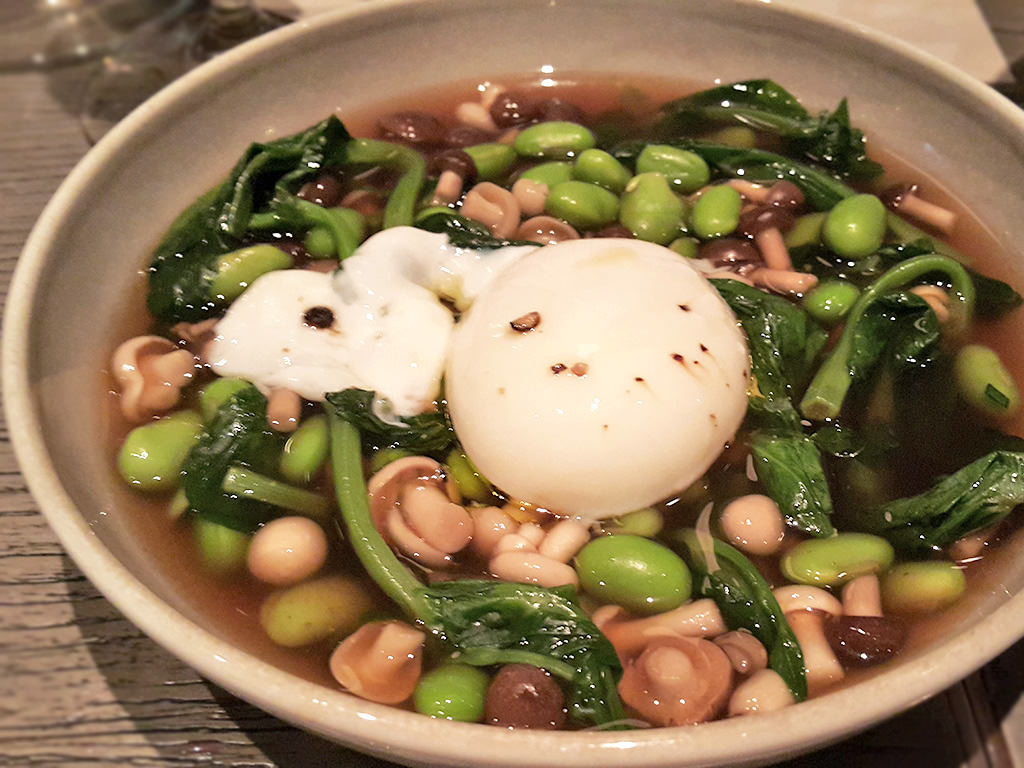Meet Chef Nate Green Of Rhoda: A Sustainable Sourcing Story
5 Mins Read
Chef Nate Green isn't just cooking some of the best food in town. He is making a serious statement about always controversial conservation issues.. Click To Tweet
It’s a bustling Wednesday night at Rhoda, Yenn Wong’s Sai Ying Pun jewel helmed by Chef-Patron Nate Green, formerly of 22 Ships fame. The place is packed with people enjoying themselves, gorging themselves on Green’s fabulous food (there’s no denying Green’s talent in the kitchen) and imbibing selections from the expansive drinks menu (Rhoda has over 50 wines by the glass). At a large table in the back, a group of us eats through an 18-course tasting menu while Green talks us through the thinking behind every dish we are served. But this dinner is more than just about the food. It’s about the story of the ingredients and the people who grow and raise them.
Right off the bat, Green explains that he is not one for certified organic this, or accredited free range that. Green is looking to get away from labels and he has no time for definition debates. His focus is on sourcing the best of everything and cooking it up the way he knows how. For Green, it’s about the animal, the vegetables, the supplier and the end result: “I want to tell the story of the farmer with my food.” Sure, but isn’t that what everyone wants? To eat delicious food that was sourced properly? According to Green, it’s no longer that simple and thanks to media hype and misinformation, the public is in the dark about many issues. For example, “the message in the media about meat and the meat industry is misleading.” As a meat-centric chef, and someone who trained briefly as a butcher in the UK, Green is devoted to the (quality) animal cause.
Unlike hundreds of Hong Kong restaurants and many of his Michelin world peers, Green does not serve Kobe beef, USDA beef or organic beef. He is focused on sourcing and serving animals that are raised with care and humanity, which tends to mean pasture-raised and grass-fed. He is also focused on cooking the entire animal. “I buy the whole animal and I serve the entire thing on the menu. We don’t kill an animal for a single cut.” In many restaurants, they want the lamb chops or the sirloin. The head and the offal? Not so much. There’s no paying a premium for a choice cut at Rhoda. He explains his stance further with some meat math: Green charges the same price per kilo no matter what part of the animal he serves. “The entire animal is valuable [to me].” His menu perfectly illustrates the point: from the Wild Hereford ox heart tartare to the terrine of pork shoulder and head to the offal meatballs.
In the same way that the corn and soy mono-cropping agribusiness culture has been a huge blow to plant diversity, industrial livestock husbandry privileges certain key animals, which has resulted in a lack of variety. Very few chefs bet on heritage breeds: “The good breeds will go extinct if chefs don’t use them,” explains Bennet Lee, the passionate proprietor of Heritage Foods, Rhoda’s meat and poultry supplier and the other key player in this sourcing story. “We are losing one pure breed a month!” Lee took over his family’s premium meat supply business around a decade ago. He wanted to understand the business at its core so he traveled the world and visited dozens of farms, factories and producers in as many countries. He came away committed to protecting heritage meat breeds. He is responsible for introducing Hong Kong to Mangalica pork, a rare bred Hungarian pig raised in the wild in a National park, that feed on wild grass, roam free and almost went extinct in the early 90s. Ditto for his poultry source. Lee showed me pictures of multi-colored mixed-breed chickens running around in the open air. Not only are these chickens ‘free range,’ “they have never seen the inside of a barn!” The downsides of the heritage meat business are many. Not all chefs care so deeply about an animal’s quality of life. Many restaurants won’t pay higher prices for rare breeds. Nor will many customers.
Despite all that, Green is focused on vegetables in 2017. One of his dishes features fresh honeycomb because “commercial fruit & vegetable farming wants to eradicate all pests. That includes insects, but also bees,” says Green. “We need bees!” he exclaims. A quick grammar school biology recap: bees pollinate plants, in turn fertilizing them so they can grow and produce the food we eat. Without bees, ALL agriculture is at risk, which means our entire food supply is at risk. In fact, it’s one of the most important reasons to support the organic agricultural movement, whether you believe that organic food is more nutritious or not. Green also talks to us about soil health. He created his multi-grain & seed risotto travado partly as a way to raise awareness about the importance of farming different types of grains in order to improve soil quality.
Green’s commitment to sourcing quality, ethical fare runs in the family. His brother Adam Green runs Bottle Shock HK, importing organic and biodynamic wines from boutique producers– his website slogan reads ‘spectacular wine without the bullshit.’ He supplies discerning chefs around town and his brother Nate serves 50 of his wine by the glass at Rhoda, many of them on draught in order to reduce packaging and waste. (The restaurant doesn’t serve bottled water either).
Bottom line: judge a chef by his sourcing. Nate Green is certainly up to the challenge.
Images from Green Queen


